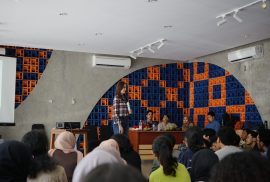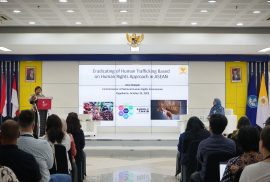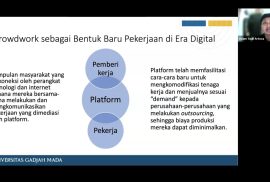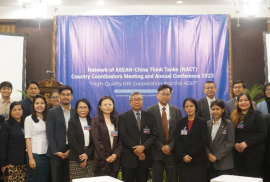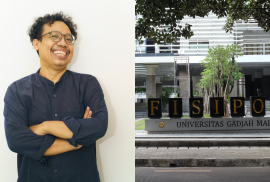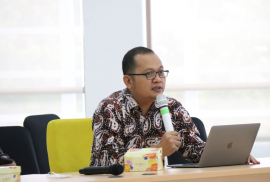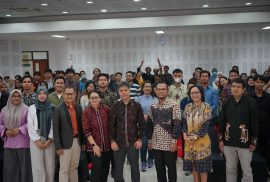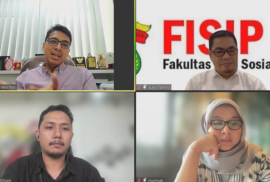Yogyakarta, October 27th 2023─The Department of Politics and Government (DPP) FISIPOL UGM held a public lecture for the Political Communication Strategy course at BRI Works FISIPOL UGM on Friday (27/10). In this session, DPP UGM invited Ira Koesno, who is a well-known public relations and news anchor, to deliver material entitled “Leadership and Crisis Communication”.
In a crisis situation, communication strategies related to the choice of diction are very important to influence the perspective of the listener or reader. “For a news anchor, producer and research are very important bases for building communication to the public,” explained Ira. As a practitioner, Ira conveyed more comprehensively regarding strategies for building verbal and visual communication in a crisis situation.

